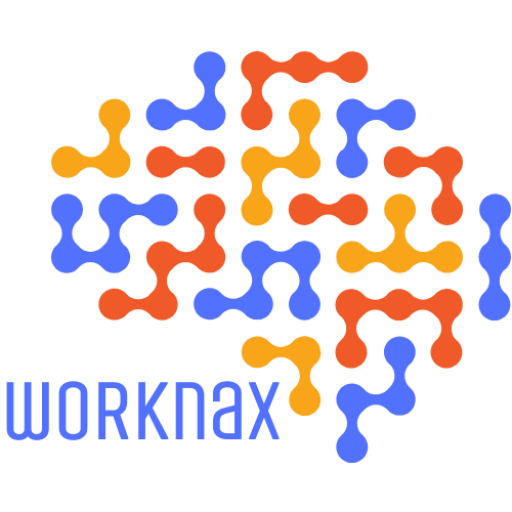Anúncios
Na era da informação acelerada de hoje, reter conhecimento é mais importante do que nunca. A capacidade de captar e reter informações pode impactar significativamente nossa vida profissional e pessoal. Estratégias eficazes de retenção de informações são essenciais para navegar no labirinto avassalador de dados que nos bombardeia diariamente. Com o enorme volume de informações disponíveis, a sobrecarga cognitiva tornou-se um desafio comum. Isso torna crucial o emprego de métodos eficazes não apenas para adquirir conhecimento, mas também para garantir a retenção do que é vital.
Um método cada vez mais popular para otimizar a retenção de informações é a implementação de técnicas de aprendizagem ativa. Ao contrário das abordagens tradicionais de aprendizagem, que frequentemente incentivam a absorção passiva de informações, a aprendizagem ativa enfatiza o engajamento com o material. Essa abordagem convida os alunos a participar ativamente do processo de aprendizagem por meio de discussões, atividades de resolução de problemas e projetos práticos. O envolvimento ativo promove uma compreensão mais profunda, tornando a retenção mais eficaz em comparação à mera memorização mecânica.
Técnicas como resumir informações, ensinar conceitos a outras pessoas ou aplicar conhecimento teórico para resolver problemas da vida real podem melhorar significativamente tanto a compreensão quanto a memória. Quando interagimos com o material dessa forma interativa, não apenas consolidamos nossa base de conhecimento, mas também criamos uma conexão muito mais forte e significativa com o assunto. Esse envolvimento mais profundo estimula um senso de investimento no processo de aprendizagem, facilitando a memorização posterior das informações.
Outra estratégia altamente eficaz para reter informações é o uso da repetição espaçada. Essa técnica potencializa o efeito de espaçamento psicológico, que propõe que a informação é melhor lembrada quando estudada em intervalos espaçados, em vez de em uma única sessão contínua. Ao revisitar as informações após uma fase inicial de aprendizagem, os alunos proporcionam aos seus cérebros mais oportunidades de codificar e recordar o material de forma eficaz. Pesquisas demonstraram que a repetição espaçada pode prevenir significativamente o esquecimento, melhorando assim a retenção a longo prazo.
Utilizar aplicativos móveis projetados especificamente para repetição espaçada pode agilizar o processo de aprendizagem e torná-lo mais eficiente. Essas ferramentas tecnológicas permitem que os alunos programem revisões com base em suas taxas de retenção individuais e podem ajudar a criar planos de estudo personalizados. Consequentemente, a adoção desses métodos não apenas auxilia na retenção, mas também permite uma abordagem mais estruturada para o gerenciamento de grandes quantidades de informações.
A visualização é outra ferramenta poderosa disponível para quem busca aprimorar suas habilidades de retenção de informações. Criar imagens ou diagramas mentais pode ajudar a fortalecer a memória, vinculando novas informações a pistas visuais. Técnicas como mapas mentais, infográficos ou modelos 3D podem resumir tópicos complexos com eficácia, simplificando as relações entre os conceitos. A representação visual atende a diversos estilos de aprendizagem, facilitando a compreensão de ideias abstratas e a memorização delas quando necessário.
Incorporar a narrativa ao processo de aprendizagem serve para aprimorar ainda mais a retenção, fornecendo contexto e uma estrutura narrativa. Quando a informação é apresentada em forma de história, ela se torna mais compreensível, envolvente e memorável. Essa abordagem narrativa permite que os alunos se conectem emocionalmente com o material, o que facilita uma melhor retenção na memória. Ao elaborar histórias sobre fatos ou processos, é essencial destacar pontos-chave que despertem curiosidade e repercutam no público.
Outra abordagem eficaz para a retenção envolve o uso de dispositivos mnemônicos. Os mnemônicos são auxiliares de memória que funcionam criando associações, padrões ou até mesmo rimas para facilitar a memorização. Exemplos de mnemônicos incluem a criação de siglas ou dicas de visualização que ajudam a simplificar as informações em partes mais fáceis de gerenciar. Um exemplo clássico é o mnemônico "PEMDAS", que ajuda os alunos a se lembrarem da ordem das operações matemáticas. Essas estratégias criativas permitem que os alunos transformem informações abstratas ou complexas em formatos muito mais fáceis de lembrar posteriormente.
A autoavaliação regular também é um pilar fundamental de práticas eficazes de retenção de informações. Ao se autoavaliar sobre o material, os alunos se envolvem ativamente no processo de recuperação do conhecimento, reforçando sua memória. Essa prática promove a recordação ativa, que pesquisas têm demonstrado consistentemente melhorar as taxas de retenção a longo prazo. Incorporar questionários ou flashcards às rotinas de estudo pode transformar a aprendizagem em uma experiência agradável e produtiva, transformando o processo em um desafio lúdico.
Estabelecer conexões entre o conhecimento recém-adquirido e as informações existentes é essencial para melhorar a retenção. Quando os alunos conseguem relacionar novos conceitos ao que já sabem, o material se torna muito mais significativo. Essa estratégia incentiva a aprendizagem contextual, o que permite uma memorização mais fácil ao criar uma rede de informações inter-relacionadas. Estabelecer paralelos ou combinar ideias de diferentes áreas não só acrescenta profundidade à compreensão, como também ajuda a solidificar conceitos na memória.
O envolvimento de múltiplos sentidos durante o processo de aprendizagem auxilia significativamente na retenção de informações. A utilização de métodos auditivos, visuais e cinestésicos atende a diversos estilos de aprendizagem e promove um envolvimento mais profundo com o material. Atividades como ler em voz alta, fazer anotações e participar de tarefas colaborativas garantem uma abordagem multifacetada à aprendizagem. Essa experiência multissensorial não apenas aprimora a atenção, mas também incorpora as informações aprendidas por meio de múltiplas vias cerebrais, resultando em melhor retenção.
Estabelecer um ambiente de aprendizagem propício também desempenha um papel significativo na retenção de informações. Um espaço livre de desordem e distrações promove a concentração, permitindo que os alunos se concentrem mais efetivamente em suas tarefas. Desenvolver rotinas que incluam intervalos pode melhorar a retenção, pois proporcionam ao cérebro o tempo de inatividade necessário para processar e consolidar novas informações. Garantir que o ambiente físico propicie a aprendizagem é tão importante quanto empregar técnicas de aprendizagem eficazes.
Descanso e sono são componentes vitais que impactam significativamente a função da memória e a capacidade de retenção de informações. Inúmeros estudos demonstraram que o sono adequado é fundamental para consolidar memórias, facilitando a recordação de informações. Evitar sessões de estudo noturno não só promove melhor desempenho cognitivo durante o dia, como também contribui positivamente para a retenção a longo prazo. Implementar uma higiene do sono adequada garantirá que os alunos permaneçam alertas e receptivos, maximizando sua capacidade de absorver e reter conhecimento.
A incorporação de tecnologia à aprendizagem também pode proporcionar caminhos inovadores para a retenção de informações. Plataformas de e-learning, aplicativos educacionais e recursos online oferecem suporte a uma variedade de metodologias de aprendizagem. Essas tecnologias podem personalizar as experiências de aprendizagem, adaptando o conteúdo e o formato às preferências individuais. O aproveitamento da tecnologia permite o acesso a diversos formatos de aprendizagem envolventes e aumenta ainda mais a probabilidade de retenção bem-sucedida de informações.
Além disso, participar de sessões de estudo em grupo pode oferecer benefícios mútuos na retenção de informações. O envolvimento com os colegas promove discussões, esclarece dúvidas e incentiva a aprendizagem colaborativa. Essas interações podem levar a uma compreensão mais profunda do material, à medida que os alunos se expõem a diferentes perspectivas, enriquecendo assim sua base de conhecimento e criando uma comunidade de aprendizagem acolhedora.
Promover uma mentalidade de crescimento também desempenha um papel fundamental na melhoria da retenção de informações. Aceitar desafios e, ao mesmo tempo, compreender que a inteligência pode evoluir com o esforço motiva os indivíduos a permanecerem persistentes em seus esforços de aprendizagem. Desenvolver a resiliência influencia positivamente as estratégias de retenção e contribui para o sucesso geral. Cultivar a crença em si mesmo e em suas capacidades pode empoderar os indivíduos, levando a uma melhor retenção das informações aprendidas.
Incorporar a reflexão regular sobre o que foi aprendido também pode aprofundar a compreensão e, ao mesmo tempo, aprimorar a memória. Reservar um tempo para contemplar as implicações e aplicações práticas de novos materiais estimula níveis mais elevados de processamento cognitivo. A reflexão também pode envolver o registro em diário das lições aprendidas ou a discussão delas com colegas. Essa prática fortalece a consolidação do conhecimento e auxilia na integração de novas informações às estruturas existentes.
Outro método que vem ganhando força nos ambientes de aprendizagem contemporâneos é a gamificação. Ao introduzir elementos de design de jogos, como pontos, níveis e competição, os alunos se tornam mais engajados e motivados a reter informações. Essa experiência interativa transforma o processo de aprendizagem tradicional em um desafio mais dinâmico e prazeroso, facilitando a retenção do conhecimento. A gamificação de experiências de aprendizagem explora efetivamente as motivações intrínsecas e, ao mesmo tempo, melhora a retenção geral.
Além disso, dividir informações complexas em partes menores e mais digeríveis promove melhor retenção. Esse método, conhecido como chunking, permite que os indivíduos se concentrem em uma quantidade administrável de informações sem se sentirem sobrecarregados. Agrupar ideias semelhantes não só facilita conexões mais fáceis, como também melhora a capacidade de memorização. Essa abordagem sistemática para o processamento de informações leva à compreensão estruturada de tópicos complexos.
Em última análise, as estratégias mais eficazes para reter informações são aquelas alinhadas aos estilos de aprendizagem individuais. Cada pessoa tem preferências distintas no que diz respeito ao processamento de informações. Explorar diversas estratégias — de recursos visuais a discussões interativas — capacita os alunos a descobrir o que funciona melhor para eles. Personalizar a jornada de aprendizagem maximiza significativamente a retenção, garantindo que o conhecimento seja adquirido e retido de forma eficiente.
Concluindo, embora o volume de informações com que nos deparamos continue a aumentar, o emprego de estratégias eficazes de retenção pode aprimorar significativamente nossa capacidade de aprender e memorizar. Utilizando técnicas como aprendizagem ativa, repetição espaçada, visualização, contação de histórias, mnemônicos, autoteste, aprendizagem contextual, engajamento multissensorial e descanso adequado, podemos aprimorar nossa memória. Fatores adicionais, como tecnologia, estudo colaborativo, fomento de uma mentalidade de crescimento e reflexão, enriquecem ainda mais a experiência geral de aprendizagem. Ao identificar e aplicar as estratégias que mais repercutem, os indivíduos podem desenvolver uma estrutura eficaz para a aprendizagem ao longo da vida e a retenção eficaz de informações.



